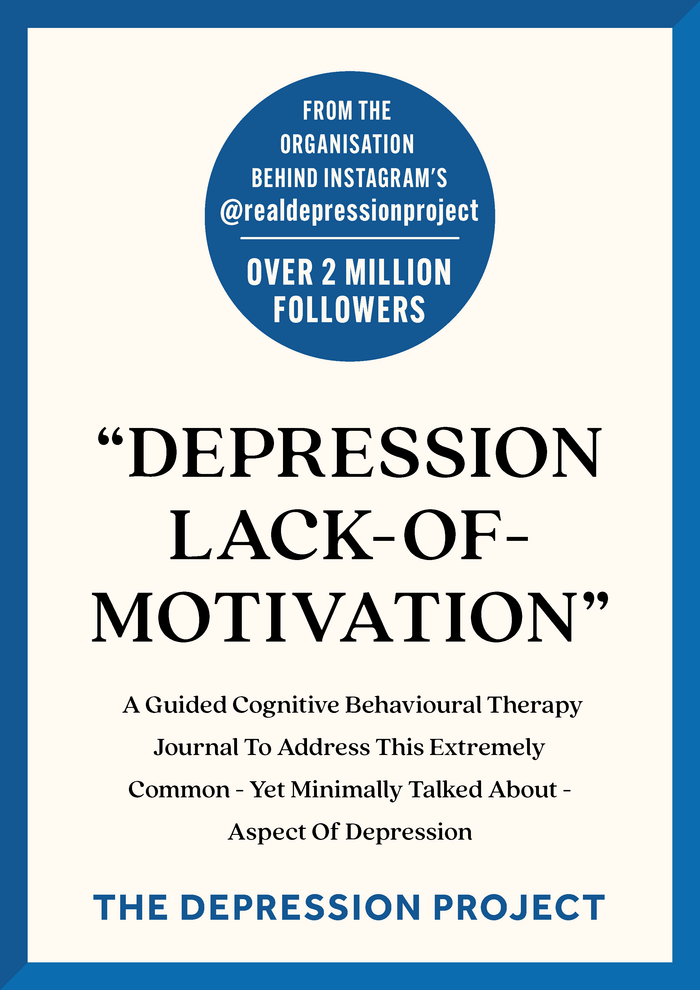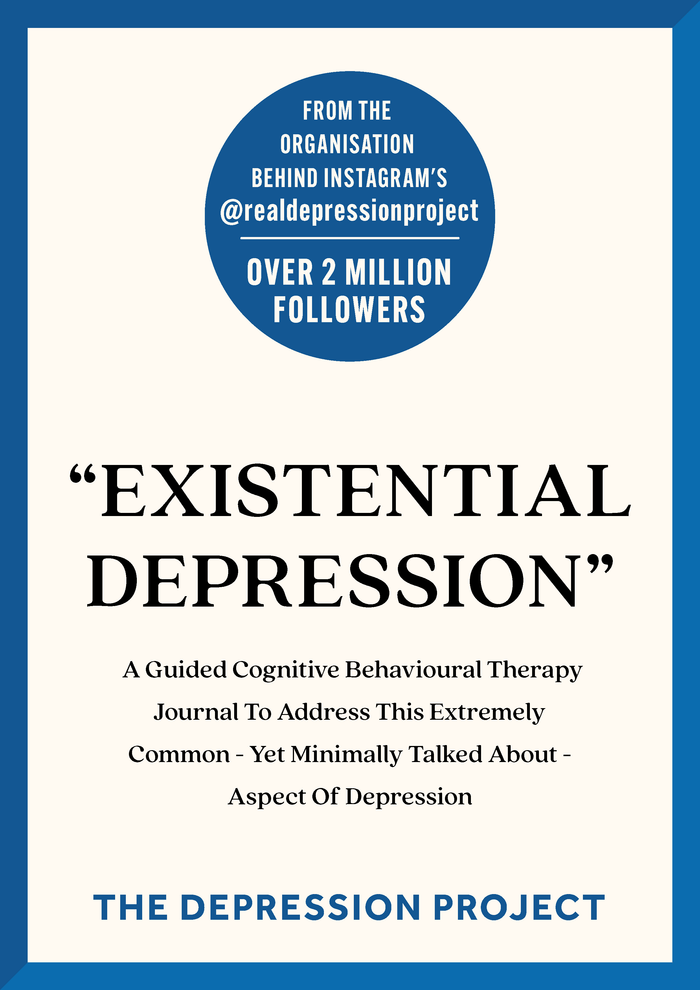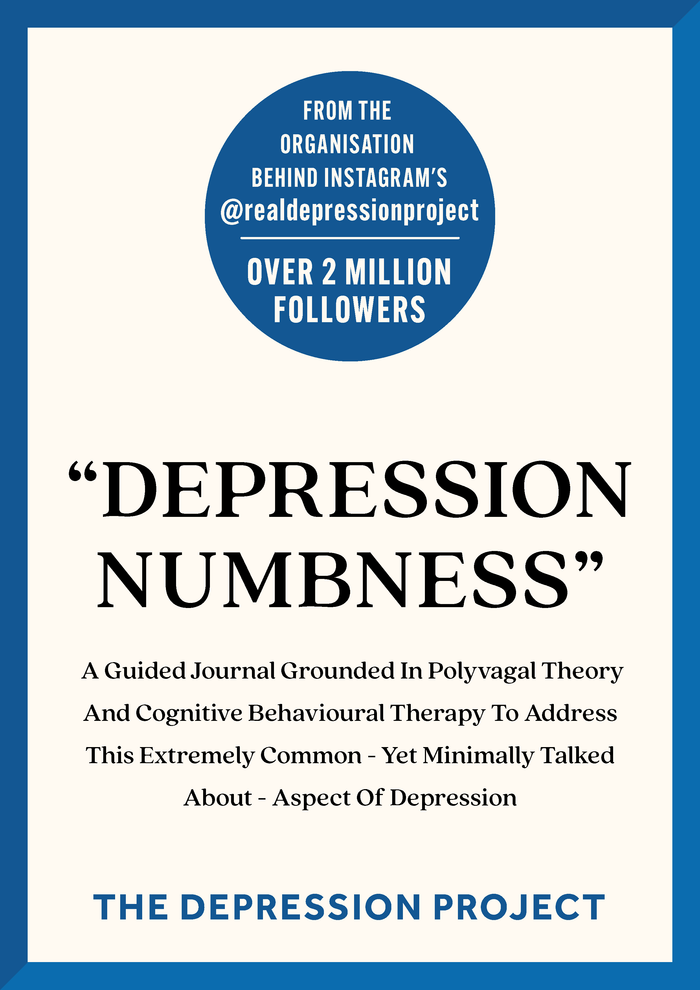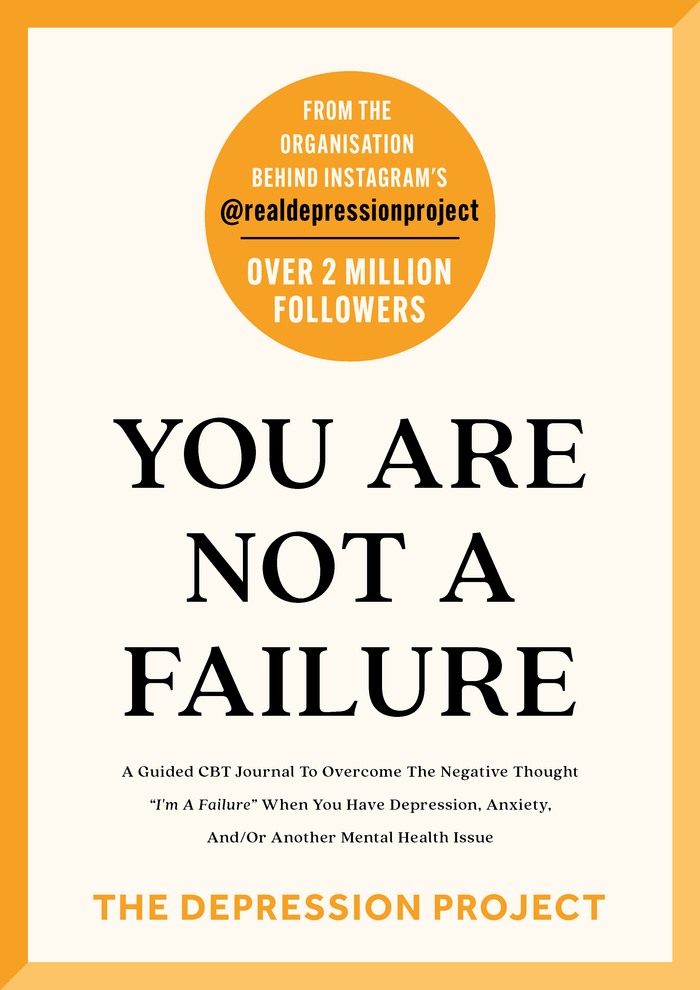As we at The Depression Project hear from members of our 3,000,000+ person social media community every single day, it's extremely, extremely common to struggle with lack of motivation when you have depression. And, for this reason, in this blog post, we'd like to share with you:
- Quotes from members of The Depression Project's community about what "depression lack-of-motivation" feels like, looks like and sounds like - in order to help you feel understood and that you are not alone;
- The reasons why it's so common for people with depression to struggle with lack of motivation;
- How to get motivated when you feel depressed by breaking out of the thinking patterns that commonly fuel lack-of-motivation;
- How to get motivated when you feel depressed by weighing the pros and the cons of not taking action;
- How to get motivated when you feel depressed by rewarding yourself when you do something that you'd felt unmotivated to do.
As soon as you're ready, let's get started!
Quotes About What "Depression Lack-Of-Motivation" Feels Like, Looks Like & Sounds Like
In order to share with you what "depression lack-of-motivation" feels like, looks like and sounds like according to members of The Depression Project's community, below, we've included a free excerpt from our cognitive behavioural therapy-based "Depression Lack-Of-Motivation" Journal.
Quotes About What Lack Of Motivation Feels Like When You Have Depression
- “No desire to do anything. Lack of hope for the future. An empty numbness. Neglecting everything as well as yourself.”
- “A sense of not knowing where life is going … and not even caring.”
- “Feeling like you’ve got the weight of the world on your shoulders.”
- “A constant state of exhaustion.”
- “Stagnant energy, decreased self-respect and esteem. Poor focus. No creativity.”
- “Frustration at knowing I have a long list of things that need to get done, but no ability – no matter how badly I want to – to actually get up and do those things, or even one thing. And then being mad at myself for not doing anything. And then not having the mental capacity to push past the ‘invisible brick wall’ and do even a little thing. And then being even more mad at myself for not getting even a little thing done. On and on.”
Quotes About What Lack Of Motivation Looks Like When You Have Depression
- “Staring at the wall for just five minutes, only to barely move your eyes and see that it has been four hours.”
- “Putting off doing even the simple things. I shop once a month. I never bother to turn off the TV. I don’t clean. I only eat when I can’t stand the pain!”
- “Sleeping a lot. Stop talking to friends and family. Isolation.”
- “Procrastinating. Hoping that you get that spur of energy and productivity, but then you get distracted by something else, and then you’re overwhelmed and you’re back to procrastinating.”
- “It looks like not washing your hair or body for long periods of time; it looks like laundry untouched in a pile or strewn all about; it looks like dirty dishes piled in the sink; it looks like missed doctor’s appointments; it looks like undone paperwork of different types; it looks like never changing clothes, wearing pj's all day, not cooking and eating just junk to get by; it looks like crazy sleep patterns. It looks like many things. It looks like crying over any and everything all day long; it looks like old friends you don’t see any more or even call; it looks like letting your home rot all around you without any idea or plan to fix it.”
- “Constantly lying in bed, half playing the 6 out of 60 phone games you have that spark the tiniest amount of interest to try to feel like you’re accomplishing something.”
- “Sitting in one spot for hours, thinking of all the things you should or could be doing but don’t because it’s too overwhelming.”
- “Not caring about your body, sleeping all the time, eating junk food. I’m going down the bad hole again and it’s so hard getting out.”
- “Doing nothing for yourself. Making a list of daily tasks like brushing my hair or my teeth but I can’t even accomplish those small things. Dirty dishes for weeks and weeks. Start to do them and about a third of the way through have to go back to bed.”
- “Sitting on the sofa internally arguing with yourself, torn between knowing you need to do things but physically being unable to bring yourself to do them. Trying to verbally motivate yourself with no success.”
- “Being surrounded by interesting things to do, but not finding the motivation to do any of them.”
- “Don’t want to talk to friends, prefer to be alone, no energy. Want to do something, but the thought of actually doing it is overwhelming.”
- “It ‘looks like’: you bought tickets to a concert three months ago (paying hundreds of dollars for them), but on the night of the event, you seriously consider blowing it off because you ‘just can’t’.”
- “My home care goes down the drain and I don’t have the energy to cook. I just eat cereal or always buy takeaway food. It’s exhausting to physically care for myself, let alone interact with people. I withdraw. It’s too tiring to stay awake.”
- “For me, it is getting ready for a day of tasks, then sitting on the couch with no energy to do them.”
- “Spending two hours putting on a sock because you can’t convince yourself to get out of bed.”
- “Not wanting to do anything, no visiting, not wanting to work and just not wanting to do the things you used to love.”
- “My plants are dead, I’m tripping over dirty clothes and my room is a disaster.”
- “Knowing things should matter to you but not actually feeling it. You could go without starting tasks that are important on paper for ages because you have lost sight of how those things can make your situation better. Or, even if you do know, you think it’s just going to take too much energy that you don’t have anymore and that you won’t be able to do a good job anyway.”
- “It’s pulling out all of the projects I want to do, setting them next to me, and then just staring at them until I decide to either move them or just leave them there.”
- “When your ‘get up and go’ has ‘got up and gone’!”
- “Sitting and staring at videos, knowing that there are so many things you need to get done, but not even being able to start anything. I know what I have to do, but I just can’t.”
Quotes About What Lack Of Motivation Sounds Like When You Have Depression
- “Why bother? It won’t make a difference. No-one cares anyway.”
- “It’s all too much.”
- “Everything is such an effort.”
- “This is too overwhelming.”
- “What’s the point?”
- “Nothing’s ever going to change.”
- “I’m not going to do this well, so why even try?”
- “I’m so useless and worthless for never getting anything done.”
- “Why can’t I just get up and do things like everyone else can?”
- “I’m a failure.”
End of free excerpt Now that we've shared with you a variety of quotes about what "depression lack-of-motivation" feels like, looks like and sounds like, let's now have a look at 10 reasons why it's so common for people with depression to feel unmotivated - as often told to us by members of The Depression Project's community. NOTE: If existential thoughts, feeling numb and/or feeling like a failure is contributing to your "depression lack-of-motivation", then we have three cognitive behavioural therapy-based journals that we think you'll find helpful: When you’re struggling with lack of motivation in the midst of a depressive episode, you may experience thoughts like: “This is ridiculous! Why can’t I just get up and do things? Everyone else seems to be able to, so why can’t I?” (And, if you’re like many people with depression, then you may have also experienced friends, work colleagues and/or family members say something along these lines to you, too). However, when you have depression, there are a variety of factors at play which can make it extremely difficult for you to “just get up and do things”. Most notably, these factors include: On that note, we'd now like to share with you another free excerpt from our "Depression Lack-Of-Motivation" Journal which identifies what two of these distorted thinking patterns which fuel "depression lack-of-motivation" are, and also shares some alternative ways of looking at things that can increase your motivation. Are you ready? “All-or-nothing” thinking involves thinking in “extremes”, instead of having a more “balanced” perspective. In particular, all-or-nothing thinking contributes to keeping you trapped in an unmotivated mindset and holds you back from getting things done by, most notably, causing your default thought process to be along the lines of: “I really should complete ALL of this particularly task … but, because completing ALL of this particular task feels like such a monumental mountain to climb, and because I can’t work up enough motivation right now to climb such a monumental mountain, I’m not going to complete ANY of it.” In practice, some specific examples of “all-or-nothing” thinking which you may be able to relate to include: However, what if instead of thinking in such an “all-or-nothing” way, you instead adopted a more flexible, balanced perspective that was somewhere in between? To see how this could work in practice, let’s return to each of our examples. If cleaning all of your home (one extreme) feels unmanageable and you can’t work up the motivation to do it, then instead of cleaning none of it (the other extreme), what if you instead tried to clean just part of it – such as by: Cleaning only part of your home like so will feel much more manageable than cleaning all of your home, and as a result, it will be easier for you to work up the motivation to do it. Additionally, because cleaning part of your home – regardless of how small a part of your home you clean – is an actionable, positive step in the right direction, then after doing so, you’ll likely also find that: Similarly, if going to the gym and exercising for an hour (one extreme) seems impossible and you can’t work up the motivation to do it, then instead of staying in bed all day (the other extreme), what if you just tried to do whatever you could manage in between these two extremes? For example: These milder forms of exercise / movement will feel much more manageable than going to the gym for an hour, and as in our previous example, they’ll consequently be easier for you to work up the motivation to do. And, as a result of engaging in these milder forms of exercise as opposed to staying in bed all day: In the same vein, if you don’t have enough motivation to catch up on all of the tasks on your to-do list today, then instead of putting all of those tasks off until tomorrow (when you’ll probably feel similarly unmotivated), what if you just completed half of the tasks today? Or a quarter? Or only one task? Again, this will be much easier for you to work up the motivation to do, and as compared to completing none of the tasks on your to-do list, will result in you feeling: In addition to “all-or-nothing” thinking, “fortune telling” is another cognitive distortion that can significantly contribute to lack of motivation when you have depression. In this context, “fortune telling” involves making a (usually negative) prediction about the future, and then assuming it to be true. And, when it comes to "depression-lack-of-motivation", some common examples include: However, what happens in the future is yet to be determined, and the major, major problem with these distorted thinking patterns is that they: To see how this happens in practice, let’s look at the example of the negative thought “I’m never going to overcome depression”. In this case, if you predict “I’m never going to overcome depression” and assume this prediction to be true, then moving forwards, you’ll likely be much less motivated than you otherwise would be to take the actions that can ultimately lead to you overcoming depression – such as, for example: This is because if you’ve convinced yourself that you’re never going to overcome depression anyway, then you likely won’t see the point in taking any of these actions. And – this is the self-fulfilling prophecy part – as a result of not taking any of these actions to overcome depression, then it’s highly, highly likely that you will remain embroiled in depression. Of course, this will only entrench the negative thought “I’m never going to overcome depression” even deeper into your psyche … which will cause you to feel even more unmotivated to take the actions that can help you to overcome depression … which will prolong you remaining trapped in depression … which will continue to intensify the negative thought “I’m never going to overcome depression” … and so the vicious cycle continues and continues. However, let’s say that rather than making the definitive, all-conclusive future prediction “I’m never going to overcome depression”, you instead had a more open-minded view of the future, such as: In each of these cases, because you have more optimism about the future and believe that it’s yet to be determined as opposed to a fait accompli, then you’re much, much more likely to feel motivated to take the actions that can ultimately lead to you overcoming depression. And, as a result of then taking these actions to overcome depression, you’re of course much, much more likely to actually do so! End of free excerpt Weighing the pros and cons of a particular action is a common distress tolerance strategy in dialectical behaviour therapy3. And, to see how it can be applied to help motivate you when you feel depressed, we'd once again like to share with you a free excerpt from our "Depression Lack-Of-Motivation" Journal. When you lack motivation to take action when you have depression, yet another strategy you can turn to in order to boost your motivation is to weigh the pros and the cons of not taking action. After all, when you choose not to take a particular course of action due to lack of motivation, you’re likely often only focusing on the short-term benefits of this decision – such as: However, what if you also considered the long-term costs of not taking action? For example, when it comes to you staying in bed all day instead of getting up and cleaning (at least a little bit) of your home, these long-term costs could include: In this way, if you bring awareness to the costs of not taking action, then there’s a good chance you’ll feel a surge of motivation to avoid these consequences, and therefore take the action that deep down, you likely know it’s in your best overall interests to take. End of free excerpt This is the final strategy we're going to share with you in this blog post in order to help you get motivated when you feel depressed. And, on that note, you'll once again find a free excerpt of our "Depression Lack-Of-Motivation" Journal below. Yet another way to increase your motivation to do something which you don’t feel motivated to do is to reward yourself for doing it. In practice, this could take the form of, for example: Now, to make your rewards as motivating as possible, we encourage you to choose rewards which: End of free excerpt In this blog post, we've covered a lot of ground concerning "depression lack-of-motivation". And, before we bring it to a close, we'd just like to reiterate two of the most important points that we have covered: From the bottom of our hearts, we really hope that you've found this blog post helpful! All our love, The Depression Project Team.10 Reasons People With Depression Often Struggle With Motivation
How To Get Motivated When You Feel Depressed By Breaking Out Of The Thinking Patterns That Commonly Fuel Lack-Of-Motivation
Cognitive Distortion #1 That Fuels "Depression Lack-Of-Motivation": “All-Or-Nothing” Thinking1
Example #1: A More Flexible, Balanced Perspective When It Comes To Cleaning Your Home When You Feel Depressed And Lack Motivation
Example #2: A More Flexible, Balanced Perspective To Movement And Exercise When You Feel Depressed And Lack Motivation
Example #3: A More Flexible, Balanced Perspective When It Comes To Your To-Do List
Cognitive Distortion #2 That Fuels "Depression Lack-Of-Motivation": “Fortune Telling1
How To Get Motivated When You Feel Depressed By Weighing The Pros And The Cons Of Not Taking Action
How To Get Motivated When You Feel Depressed By Rewarding Yourself
Final Words & The Biggest Two Takeaways About "Depression Lack-Of-Motivation" From This Blog Post





